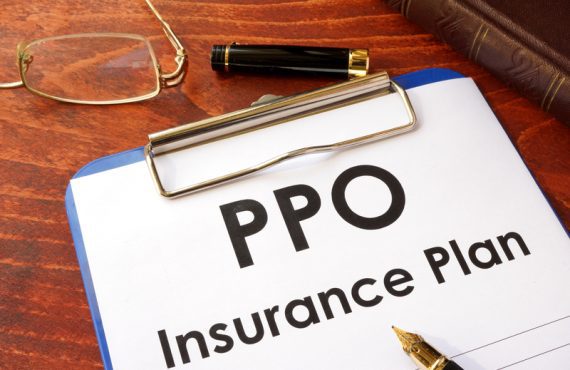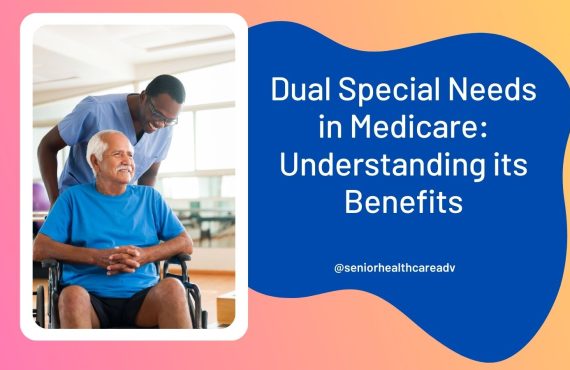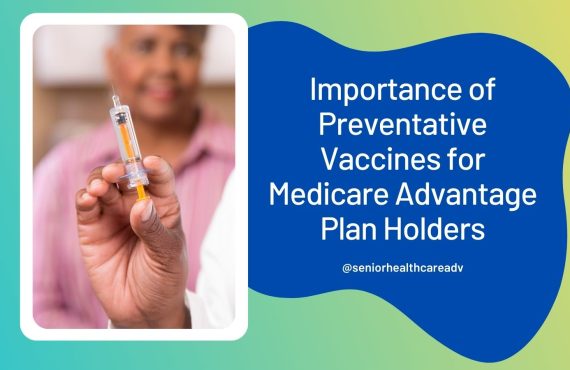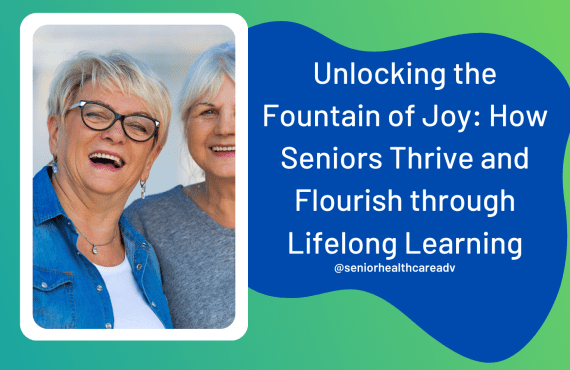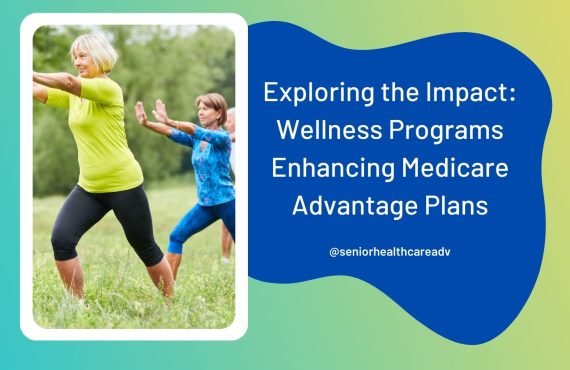The process of aging comes with its own set of stressors, concerns, changes, and challenges. Each of these on their own can take a toll on mental health, so experiencing more than one of these concerns, especially for those who have little to no support system can be overwhelming.
Older adults can face a variety of mental health disorders, including anxiety, depression, and substance abuse. If not treated properly, declining mental health can have a hazardous effect on the lives of senior individuals.
What mental health services does Medicare cover?
If you have an Original Medicare:
- Part A provides coverage for inpatient care you receive in a general or psychiatric hospital.
- Part B covers: Outpatient services, such as depression screening you are administered in a primary care setting, substance use disorder treatment, including treatment with medication for opioid dependence, prescription medication that you cannot give to yourself at home, group therapy, and other medically necessary services.
- Partial hospitalization program (PHP) for substance use disorder and mental health treatment if you meet coverage requirements. Some substance use disorder treatment centers provide housing for their PHP patients but still bill the insurance company for PHP.
Medicare covers both inpatient and outpatient mental health care. Medicare prescription drug plans cover medications used to treat mental health conditions, but be sure to check the formulary to ensure the brands and dosages you take are included.
***Note: TRICARE Standard does not cover substance abuse treatment or mental health services. TRICARE does not offer the same additional benefits as Medicare Advantage.
If you are enrolled in a Medicare Advantage Plan, your plan’s coverage must provide the same benefits as Original Medicare for inpatient and outpatient addiction recovery and mental health services as Original Medicare. However, it may inflict different costs, rules, and restrictions. If you want to know more about the coverage and cost rules or you are having problems, contact your Medicare Advantage Plan.
Medicare Part D prescription drug plans are not required to provide coverage for all drugs, they mandate coverage for all antidepressant, anticonvulsant, and antipsychotic medications (with limited exceptions).
If you feel you need help with addiction recovery services or mental health care, begin by making an appointment with your primary care physician (PCP) to see what options you have available or you can call your plan directly and discuss your options. **Ask your doctor if he can refer either a program or service to treat your specific issue.
Medicare coverage of behavioral health care
What addiction recovery services does Medicare cover?
Medicare provides coverage for treatment for substance use disorder and alcoholism in both an inpatient and outpatient setting if:
- Your provider deems the services to be medically necessary.
- You get your services from a Medicare-approved provider or facility
- Your provider sets up your treatment plan of care.
Examples of services covered include individual therapy, group therapy opioid treatment program (OTC), Structured Assessment and
Brief Intervention (SBIRT) services are provided in a doctor’s office or outpatient hospital and certain outpatient prescription drugs.
Note: Medicare Part D prescription drug plans don’t cover methadone or medications similarly administered to treat substance use disorder, however, they can provide coverage for methadone if it is used to treat other conditions, such as pain. OTPs can provide Suboxone or methadone for substance use disorder treatment.
Make sure you ask any doctor or other provider you attend to see if they take your Medicare insurance plan before you receive any services. If they do not take your insurance plan, you will, most likely, get a bill for the full amount.
Psychiatrists are the most likely type of physician to opt out of contracting with Medicare, which means Medicare won’t provide coverage for any of the cost of care from those providers.
***Note: Not all non-medical providers (like psychologists or clinical social workers) are Medicare-certified.
Prescription Drug Abuse in Seniors
Prescription drug abuse happens when someone misuses their prescription medication. It can happen so quickly that you may not even know you are slipping into a real problem. Anytime you take a medication differently than your doctor prescribed, you are running the risk of drug abuse and possibly drug addiction. Taking your medicine with alcohol or taking someone else’s medicine are also forms of drug abuse.
The term “controlled medications” was coined by the Drug Enforcement Administration (DEA) for medications with the potential for abuse or addiction. Anti-anxiety, pain, and sleep medications can fall into the “controlled substance” category. Over-taking, self-medicating, or mixing these drugs can lead to addiction, drug interactions, or even death by overdose. Plus, the agony of trying to get off of them is sheer terror. Drug interactions can be life-threatening and/or make your prescribed medication less effective.
Most of the time prescription medications are effective and safe if you are following your physician’s directions for how to take your medicine. However, addiction can happen even when you do follow your doctor’s directions.
Most seniors who suffer from prescription drug abuse do so by accident. Older adults take more medications than any other age group, increasing their risk of making medication errors and drug abuse. Plus, as you get older your body slows down in its ability to filter and absorb medications. This means seniors are at a higher risk for drug abuse even when taking a lower dose than younger people. According to the Kaiser Family Foundation (KFF, 2024), mental health and substance use disorder services are needed by people of all ages, including seniors.
Road to Improved Senior Health
Seniors are commonly prescribed two types of medication with a high potential for abuse and/or addiction. Men and Mental Health
Starting around age 55, a man’s mind and body start becoming increasingly susceptible to physical problems and mental health disorders that can derail your happiness, health, and even life itself.
Mental health issues, such as depression and anxiety, affect men too, but they sometimes are difficult to talk about, specifically with their doctors.
“Historically, many men are taught to “stuff” their feelings, such as anxiety, fear, or sadness”, says Dr. Marilyn Field, Ph.D., a Senior Healthcare Advisors psychologist. Plus, some doctors don’t routinely talk about mental health, and men routinely don’t mention it either during regular visits.
Opioid Painkillers (Percocet, Vicodin, Fentanyl, Codeine, Tramadol, and OxyContin).
Percocet and Vicodin contain acetaminophen (Tylenol) which is toxic to your liver. WebMD (2022) reported individuals can become addicted to opioid painkillers in as short as five days. Opioids cause a feeling of euphoria that quickly requires the user to take more to receive the same effect. One of the biggest problems associated with opioid abuse is the patient being uninformed. We get so used to hearing potential side effects of medications, that we can tune out some really important information.
Benzodiazepines (Xanax, Valium, Klonopin, Restoril, Serax, Ativan)
Benzodiazepines are used for the treatment of insomnia, anxiety, and panic attacks. When a senior becomes addicted to benzodiazepines, it can be very difficult to recognize because the signs and symptoms of benzodiazepine addiction can closely resemble behaviors associated with aging. Memory loss and confusion are symptoms of both benzodiazepine abuse and aging.
Warning Signs of Senior Drug Abuse and/or Addiction
- Doctor shopping or going to different doctors for the same medication.
- Going to two different pharmacies to get the same prescription filled.
- Taking more than the directed dosage of a medication.
- Becoming angry or withdrawn.
- Frequently talks about medicine.
Medicare Advantage and Telehealth for Substance Abuse and Mental Health
Some telehealth services are covered under Medicare Part B, including for substance use disorder and mental health services as well as services not related to mental health on both a temporary and permanent basis as part of the COVID-19 public health emergency.
Medicare Advantage plans have additional flexibilities to provide telehealth benefits, which include costs associated with telehealth benefits (beyond what traditional Medicare covers) in their bids for basic benefits.
This coverage includes telehealth visits offered to enrollees in their own homes and services provided outside of rural areas (benefits not covered by traditional Medicare before the COVID-19 pandemic) and can be offered for substance use disorder and mental health services.
From Senior Healthcare Advisors: Aging in place hits us with so many changes as we transition into our golden years. So, remember to take good care of yourself and be sure you are putting your health first through any journey you are on.
***Disclaimer: A Senior Healthcare medical specialist has reviewed this information. It is for educational purposes only and is not intended to replace the advice of your doctor or other health care provider. We encourage you to discuss any questions or concerns you may have with your provider.







